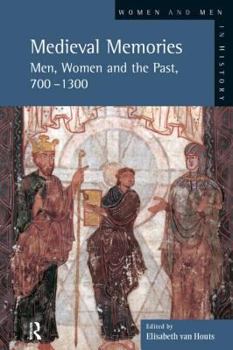Medieval Memories: Men, Women and the Past, 700-1300
Select Format
Select Condition 
Book Overview
Who, exactly, was responsible for the preservation of knowledge about the past? How did people preserve their recollections and pass them on to the next generation? Did they write them down or did they hand then on orally? The book is concerned with the memories of medieval people. In the Middle Ages, as now, men and women collected stories about the past and handed them down to posterity. Many memories centre in the aristocratic family or lineage while others are focussed on institutions such as monasteries or nunneries. The family and monastic contexts clearly illustrate that remembrance of the past was a task for men and women and that each sex had a specific gendered role. Memory also involves selection of what should and should not be remembered and its corollary, amnesia, therefore, is discussed. Anchored in the present, memory casts a shadow on the future and thus prophecies form an important component of the cult of remembrance. For the first time in Medieval Memories, tombstones, medieval encyclopaedias and legal testimonies figure alongside moral guidebooks, miracle stories and chronicles as material for the gendered perceptions of the medieval past.
Format:Paperback
Language:English
ISBN:0582369029
ISBN13:9780582369023
Release Date:November 2000
Publisher:Routledge
Length:200 Pages
Weight:0.70 lbs.
Dimensions:0.4" x 6.1" x 9.2"
Customer Reviews
0 rating





